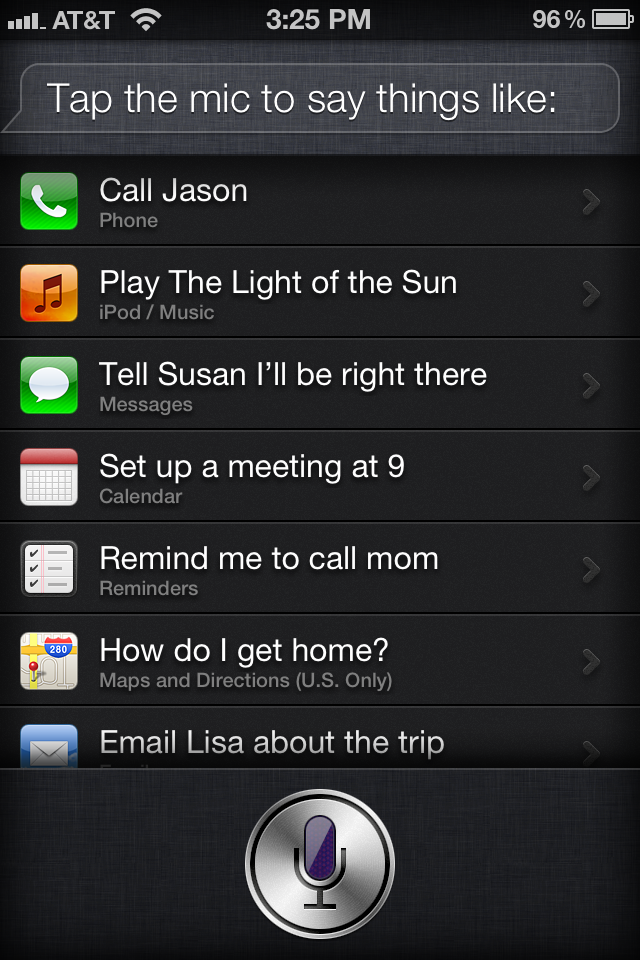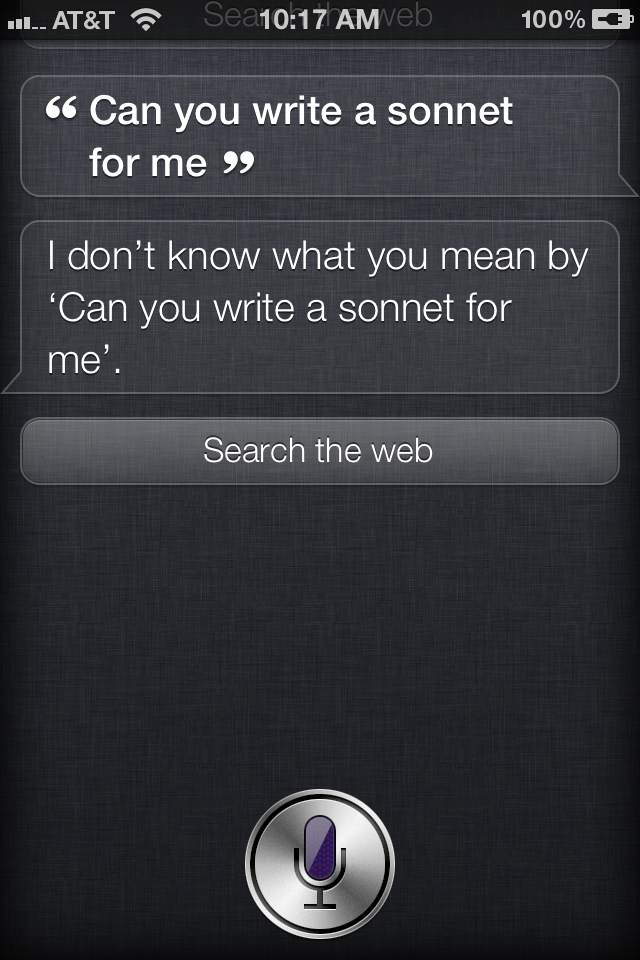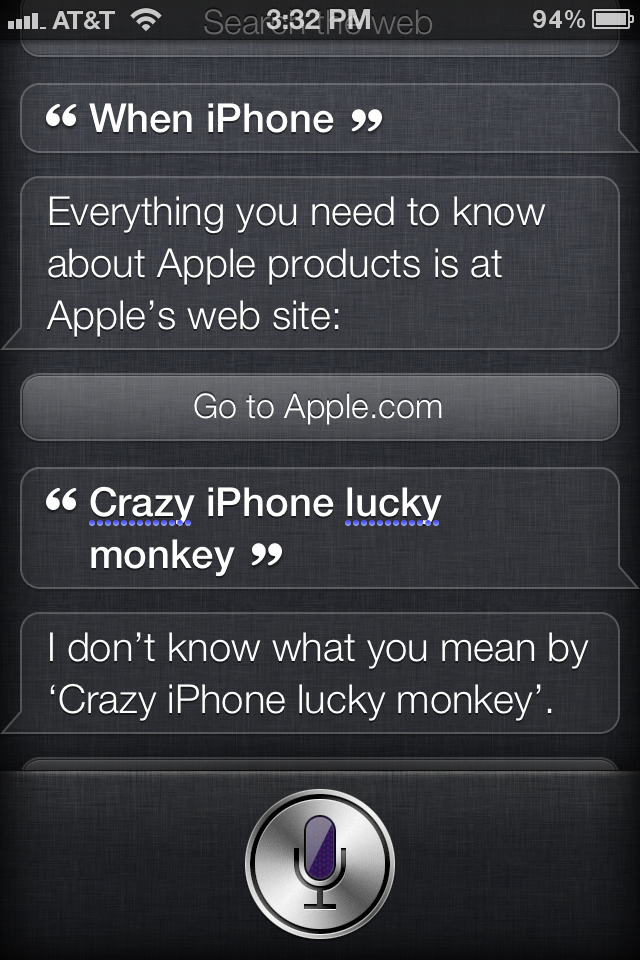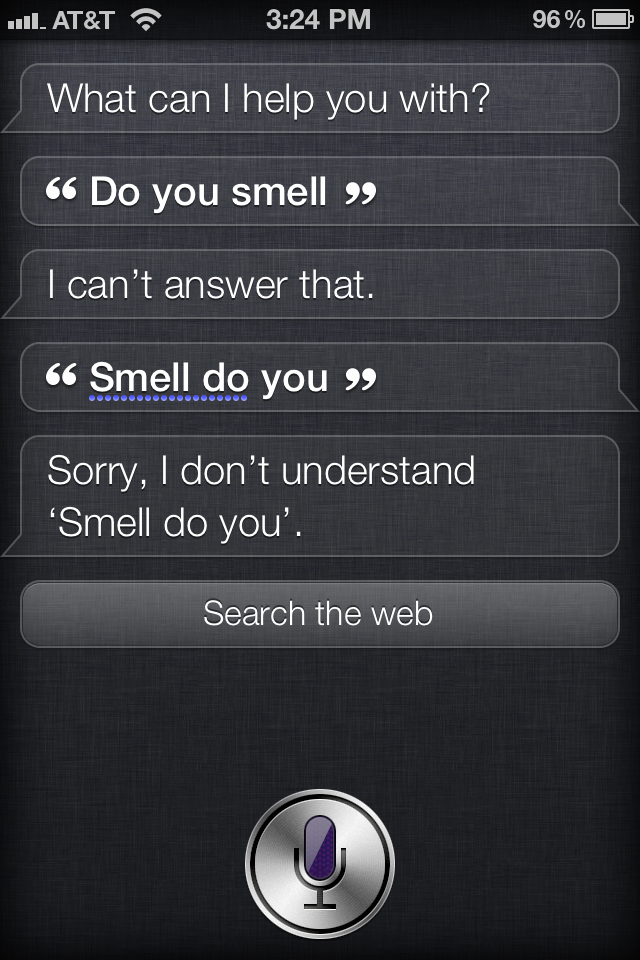Apple iPhone 4S, Part 2: Battery, Camera, And Display Quality
Siri, How Smart Is Smart?
Siri, a new automated voice control system, is probably the most discussed feature to find its way in Apple's iPhone 4S. Think of it as a virtual butler. You hold down the home button and you're prompted to speak. For a comprehensive list of the functions Siri can perform, check out Tuaw.com’s post.
We've already seen a number of parodies demonstrating Siri's various limitations. However, we're more interested in the mechanics of linguistics and intelligence. So how does it work?
First, we should clarify that Siri isn't just an app. Provided you're asking questions and not giving commands, Siri is a service that interfaces with Apple's servers to find a response. As such, the "intelligence" behind Siri may change over time as the company optimizes its code.
Let's get the obvious out of the way. Is it smart? Well, no. it won't pass a Turing test.
Syntax matters a lot. I've spent the better part of a day experimenting, and Siri definitely prefers the English standard of subject/verb/object, as opposed to object/subject/verb or object/verb/subject. Basically, don't talk like Yoda.
Questions, commands, or statements that contain extra or unessential words confuse Siri.
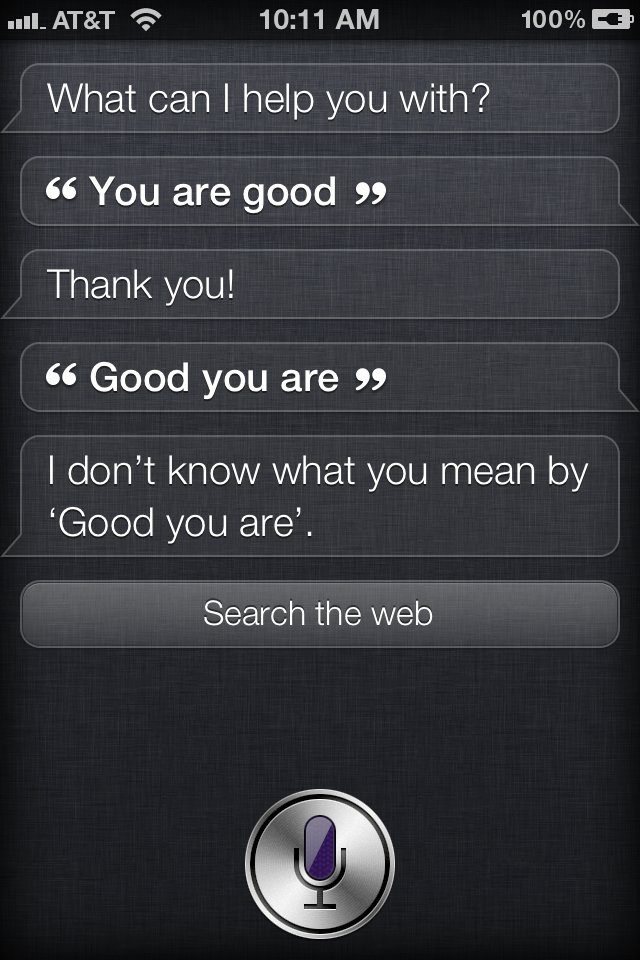
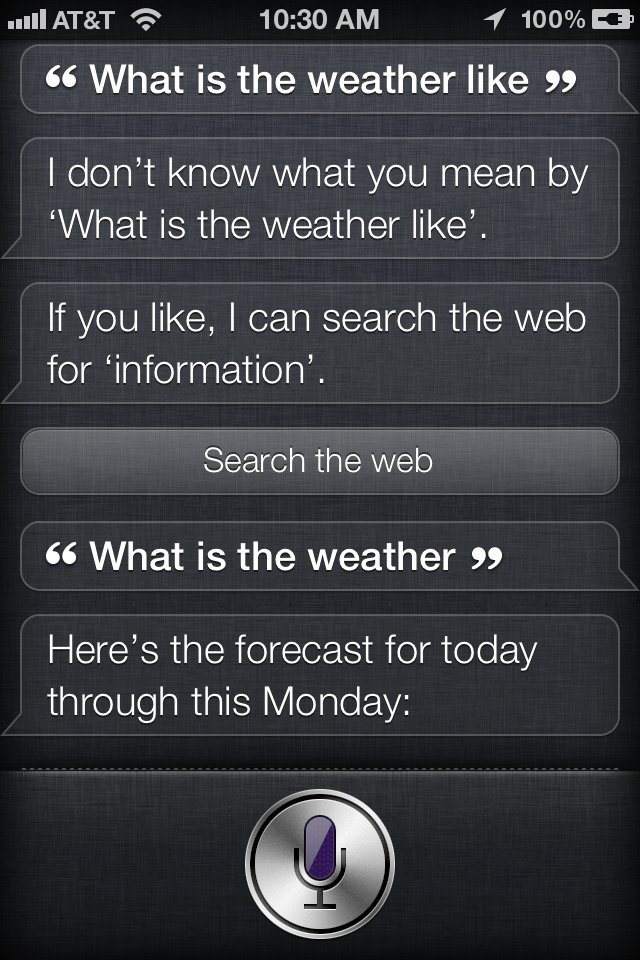
Whenever you ask a question, Siri checks to see if it contains a keyword. This list of keywords only takes precedence over general syntax rules when Siri doesn't recognize the string of words as a question.
Get Tom's Hardware's best news and in-depth reviews, straight to your inbox.
A given keyword sets off a function like looking up the weather. So far, we've worked out that this list includes: clothing, weather, food, restaurants, hospital, and clinic.
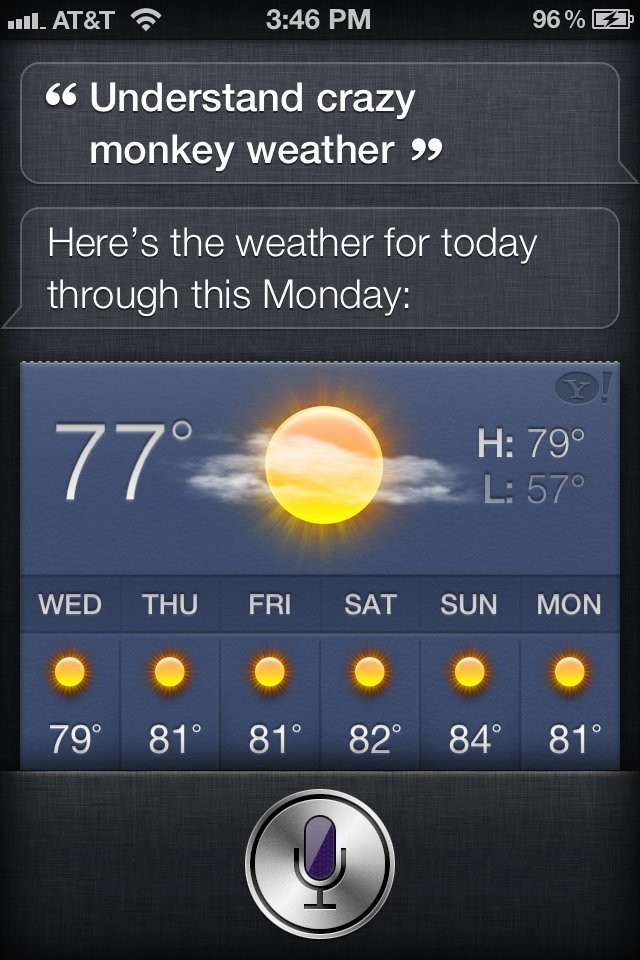
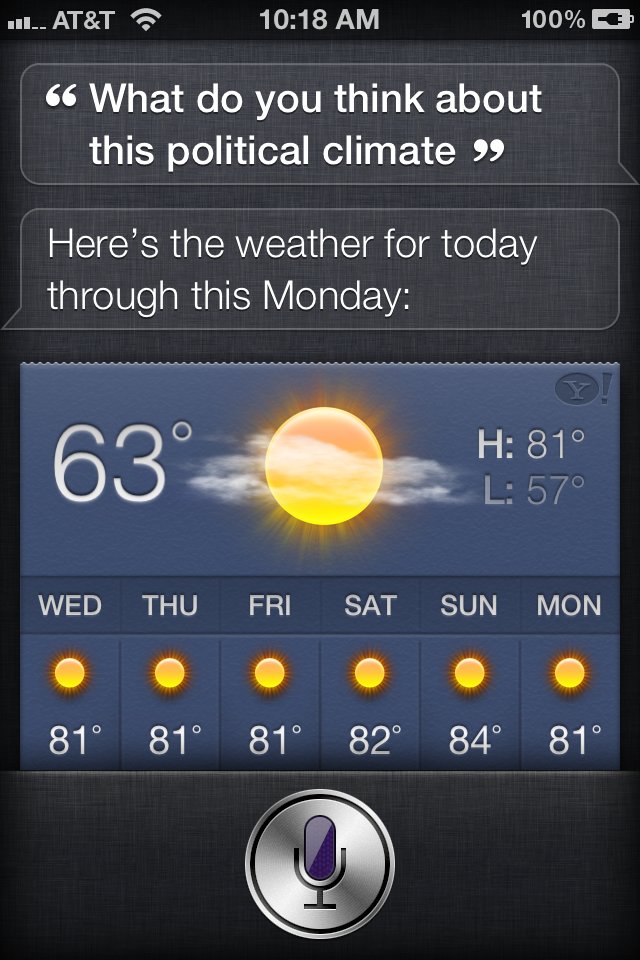
We know it's a keyword-based search because we can use complete nonsense using a random word generator and still get a result. No grammar or logic is needed for this type of "intelligence."
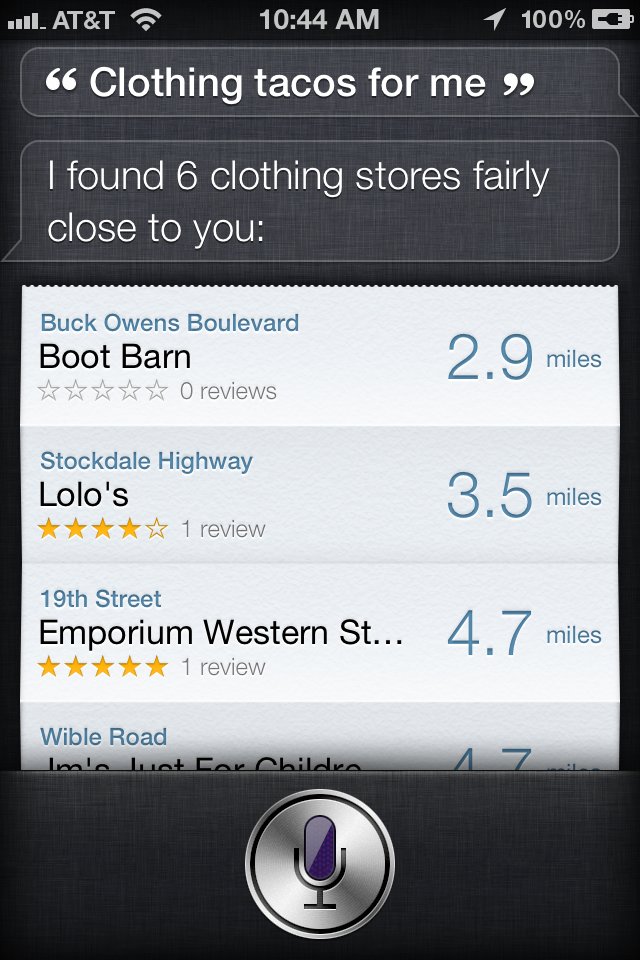
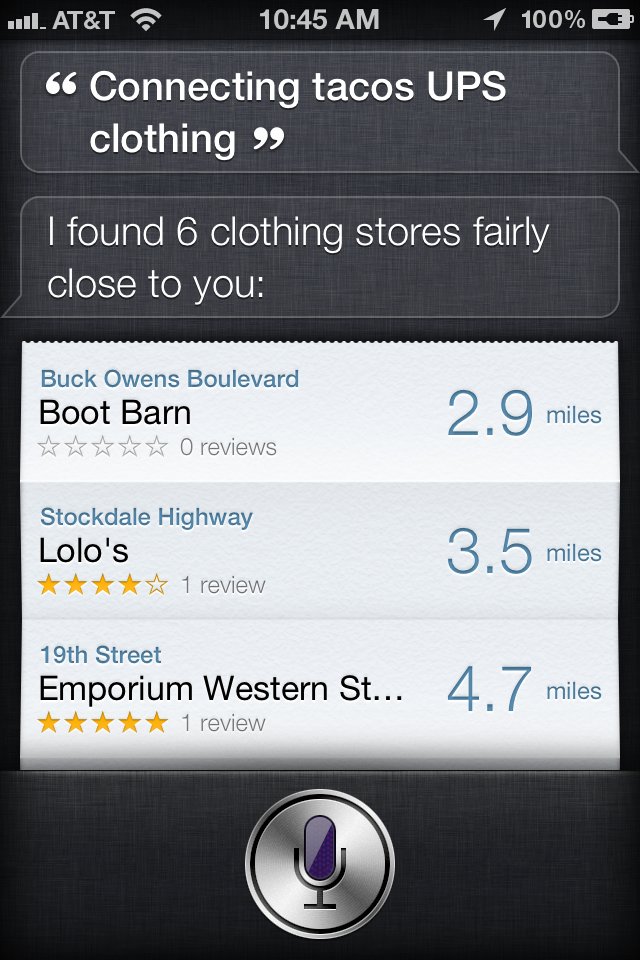
Some proper nouns are also included in this list.
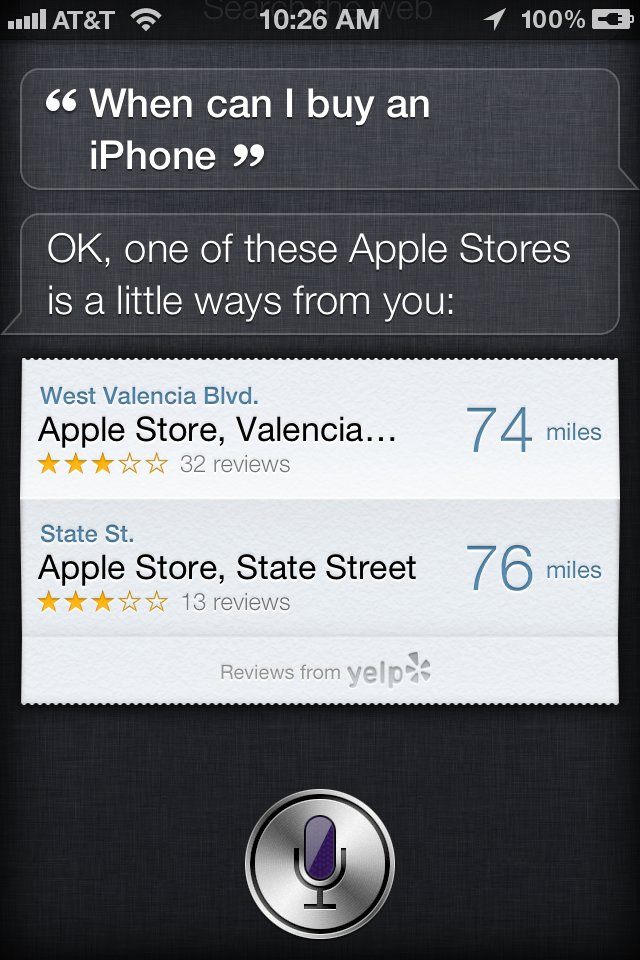
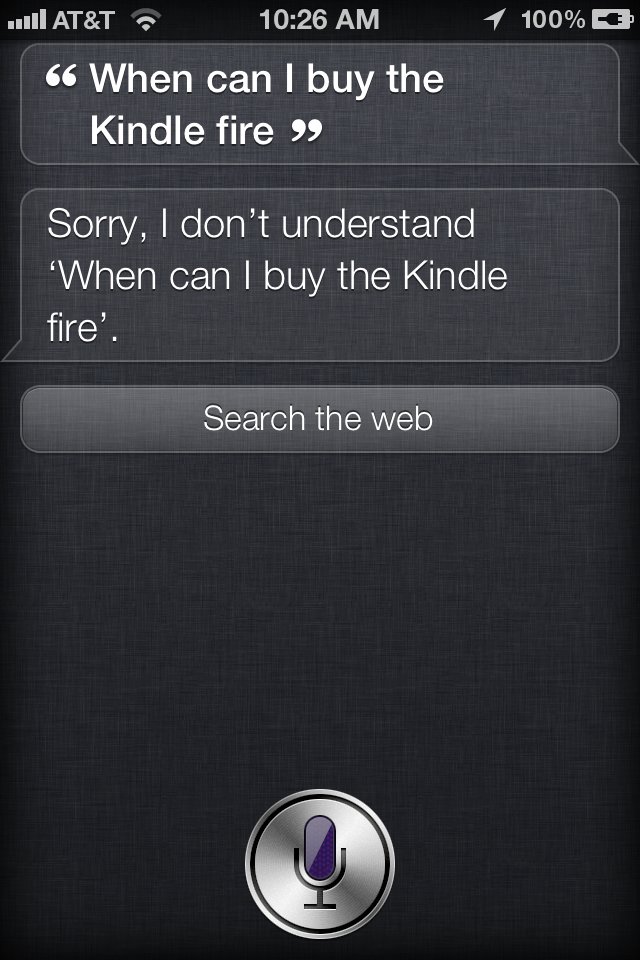
Provided your syntax is correct and is structured in the form of a question, Siri seems to lock in on the word "you" in order to recognize when it should provide eight-ball-style answers.
Current page: Siri, How Smart Is Smart?
Prev Page Camera Quality: Video Performance Next Page After A Few More Days With Apple's iPhone 4S...-
compton If the display really is improved, then I think I'm going to have a hard time resisting the 4S (not that the 4's display was anything but great to me, but it's just more icing on the S cake). Good displays of any kind are rare in some (many) segments, but mobile devices wouldn't have great displays now had not Apple has pushed the market forward to IPS (and other higher quality type) panels in tablets and phones. If only they could do the same for laptops...Reply -
rhangman From what I have read there are two different displays, one colder, one warmer. According to this review the warmer one is better, but people seem to prefer the blue screen.Reply
I believe the 4 also came with yellow/blue screens, if so the screen is nothing new. -
mayankleoboy1 ReplySiri is more of a mixed bag. It's useful, but by no means smart.
you want a human comparable AI running inside a phone?
of course siri is basic. and so is all other AI. -
deputc26 "It's more flexible under a wider range of lighting conditions and benefits from higher pixel density." Benefits from higher pixel density??? A camera sensor? I assume you mean photosites rather than pixels. Except that the smaller photosite... the worse they are not the metter. I think you should say it "benfits from higher resolution and does not lose per-pixel detail due to the increased quantum efficiency of the new sensor"Reply -
Kamab Maximum white luminescence and max contrast ratio are going to have a direct correlation, aren't they? I think the reason they didn't mention a display upgrade is because there isn't one. They simply got their LCD panels from a different vendor (probably cheaper). I can see the camera upgrade being handy though.Reply
The IP4S to me feels like an attempt by apple to lower expenses by leveraging existing architectures (IP4) and components (processor from iPad2) to drive profit margins.
The only reason someone with an IP4 should upgrade to an IP4S is that due to extreme demand you could probably sell back your IP4 for 350-400$ and know that your 4S will retain value for a long time as well.
-
acku Reply9521688 said:Maximum white luminescence and max contrast ratio are going to have a direct correlation, aren't they? I think the reason they didn't mention a display upgrade is because there isn't one. They simply got their LCD panels from a different vendor (probably cheaper). I can see the camera upgrade being handy though.
The IP4S to me feels like an attempt by apple to lower expenses by leveraging existing architectures (IP4) and components (processor from iPad2) to drive profit margins.
The only reason someone with an IP4 should upgrade to an IP4S is that due to extreme demand you could probably sell back your IP4 for 350-400$ and know that your 4S will retain value for a long time as well.
Yes and no. I dialed back luminance for some other lab testing and we certainly still saw a difference in color temperature and gamma. This kind of goes back to the yellowing issue seen on some iPhone 4s (plural not 4S), which may be possibly related, but the replacements that Apple sent out were suppose to have their yellow tint fade away over time. At least that was the story... The bottom line is that there is a difference between the two models.
I suppose one could argue that its a cheaper panel. The one thing that the microscope shows is that it definitely is a different panel. This isn't just a weird chemical film that's plaguing a batch of Retina displays. This is actually a different panel at the subpixel level, because the subdomain structure has also changed.
7200 K is closer to the standard 6500 K, but without proper color calibration though, I'd say blue looks more natural. That's also reflected in the "standard calibration" most manufacturers use on their LCD displays.
I don't know about the only reason to switch. There certainly are many reasons not to use an iPhone, and I would be remiss to recommend one to everybody. In the US, the real problem is the inflexible carrier plans and the requirement to buy a data plan. Of course, this is a problem with all smartphones, so not just applicable to the iPhone.
Cheers,
Andrew Ku
TomsHardware.com -
jecastej Great review with plenty of images to show the differences in display and camera quality. The iPhone 4S really shows better definition under regular and more extreme light conditions and also the white shows a better balance. Also I can distinguish better color saturation on the "S" that maybe helped by the higher resolution. Siri shows to be based on a set of commands, but in the end the user will speak comprehended logical commands. It is not that fun as a real companion but we may get there someday.Reply
